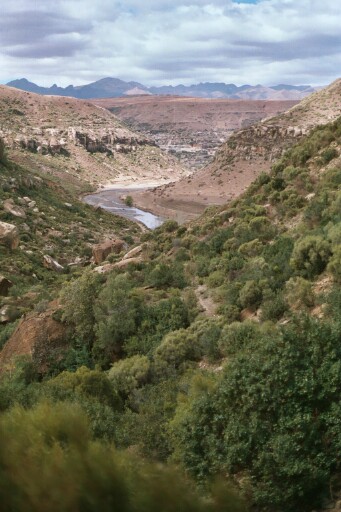A long time ago I worked for two years in the Central Bank of Lesotho. The small mountainous Kingdom of Lesotho in southern Africa is an unusual country in many ways: it is the only country with all of its land over 1,000m; it’s one of only two countries (the other is the Vatican) entirely surrounded by one other country (in Lesotho’s case, South Africa); and it has a problem with cattle.
Cows are a traditional source of wealth in several African countries but in Lesotho’s arid and mostly infertile landscape, overgrazing of cows has been a longstanding problem. (Much of the best agricultural land of the original nation of Lesotho was stolen by the Boers and forms part of the Orange Free State. Lesotho’s independence and avoidance of the catastrophe of apartheid is a result of Britain making the truncated remainder known then as Basutoland a protectorate in 1868. The country became independent in 1966). Men (not women) want to own cows. But the result is too many cows kept on common land, causing damage to the grass. Cattle ownership brings prestige and can be an essential part of social life, including “brideprice“, the payment made by a man to the family of his new bride.

This is an example of a much wider problem, the “tragedy of the commons“, identified in England several centuries ago and given modern expression in a classic essay by ecologist Garett Hardin in 1968. If land is communally owned then each user has an incentive to put their cattle on the land without considering the full social cost. A single owner of land would halt the grazing at the point when the marginal value of an extra cow was offset by the marginal damage to the pasture. But common ownership can lead to a social cost that exceeds the private marginal cost, as each user fails to take into account the externality cost of his or her cow on the wider population. (The same problem occurs in traffic congestion – each driver counts only the private cost of his or her journey, not the total social cost, which includes the increased congestion caused by his or her journey).
The conventional economics approach to such externalities is either to impose a tax equivalent to the gap between the private and social marginal cost or, even better, privatise the communal property so that there is an owner with a clear incentive to match marginal costs and benefits. To an economist, many market failures such as externalities can be traced to an imperfect or ill-defined allocation of property rights. But communal ownership is a very deep rooted social institution in many parts of the world and it would be very difficult to change this.
But the apparent collective irrationality of overgrazing in Lesotho is not quite what it seems. In their endlessly fascinating blog, Daron Acemoglu and James Robinson (authors of Why Nations Fail) cite research by Stanford University anthropologist James Ferguson. Ferguson argued that there are reasons for the continuing emphasis on cattle as wealth. Many Basotho men traditionally worked in the gold mines of South Africa, tough and dangerous work but which brought much higher wages than most could earn in the poor domestic economy of Lesotho. They remitted cash savings to their families, which still forms about a quarter of Lesotho’s national income. After years living abroad, these men return home and want to have savings which are safe, entirely under their control and which provide some social and communal value. And cows cannot be converted back into cash, according to the social norm. Whereas cash is likely to be under at least partial control by their wives, cattle can be owned only by men. So cows provide a source of independent wealth to men as well as maintaining a link to their communities for when they retire back home.
None of this lessens the over-grazing problem but it suggests that the Basotho (men) keep this custom for more than just irrational tradition.


Leave a Reply